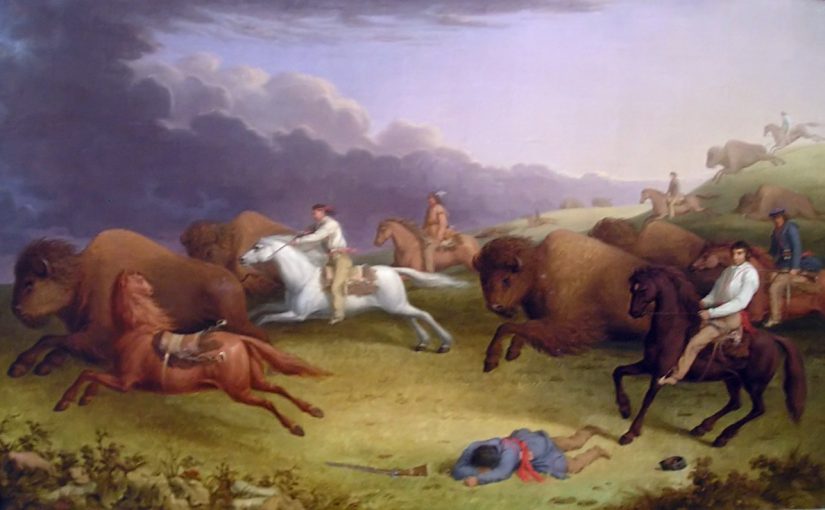Feb 13th 2017
Triggering passages: “To gain land on which to build the railroads and graze cattle, it was deemed necessary to push out the Native Americans who lived on the land, and exterminating their primary food source- the buffalo- was considered a prime means to that end. With the buffalo gone, cattle assumed greater importance as a food supply.” (Newman 2013: 96)
“The intent is hyper-acceleration of resource extraction and development, and these are on indigenous territories, and the way to accelerate that process is to create legislation, and to have that legislation part of the instrument through which poverty is utilized. This is the old colonial model, which is having the veneer of consent. It is to manufacture it. To manufacture poverty and then manufacture consent.” (LaDuke 2015: 137)
“The North American economy consumes a third of the world’s resources, with perhaps a tenth of the world’s population. That level of consumption requires constant interventions into other countries, and constant violations of human rights” ( LaDuke 2015: 138)
News Media Context:
Can Farming Solve Detroit’s Post Industrial Blues?
“Greg had never totally accepted Detroit’s label as a “food desert,” although he knew the phrase attracted foundation money. He saw Detroit as more of a “food labyrinth.” Good food was there; you just had to know where to find it (and have the means of getting there). Just a mile from his farm, for example, was an excellent independent grocer in Mexicantown with fresh produce and homemade tamales and guacamole. More to the point, the movement was not just about vegetables but about economy and restructuring society. He didn’t want to be just the guy who brought arugula to the ghetto.”
https://www.vice.com/en_us/article/urban-farming-the-future-detroit-v24n1
Response:
Given the context of my current internship work and the words of LaDuke and other native activists, it is hard not to feel uneasy in regards to Newman’s rather simplistic view of the communities affected by commodities like corn, cattle, sugar, coffee and chocolate. Newman’s “strictly business” perspective, while straightforward and easy to understand statistically, creates a narrative in which the story of the colonizer is the only story that is told.
LaDuke’s simple but heart-wrenching stories of Native people across North America and Indigenous peoples worldwide create a narrative that is so often forgotten, one where we are reminded of the destructive nature of capitalist systems and the decimation of land and prioritization of portions of the population that is necessary for these systems to thrive.
Laduke’s writing’s on colonization, commodification, and resource extraction are a reflection of the principles upon which this country was founded upon, philosophies that place profit above the well-being of complex ecosystems and human lives.
Communities coming back to their lands is essential at this point in history. The voices of native fishermen, underserved communities fighting to feed themselves, and marginalized people must be heard. Creating and participating in systems that speak and act against colonialism and an awareness of the ways media so often skews projects of extraction as necessary “progress” is essential in creating inclusive and effective change.
